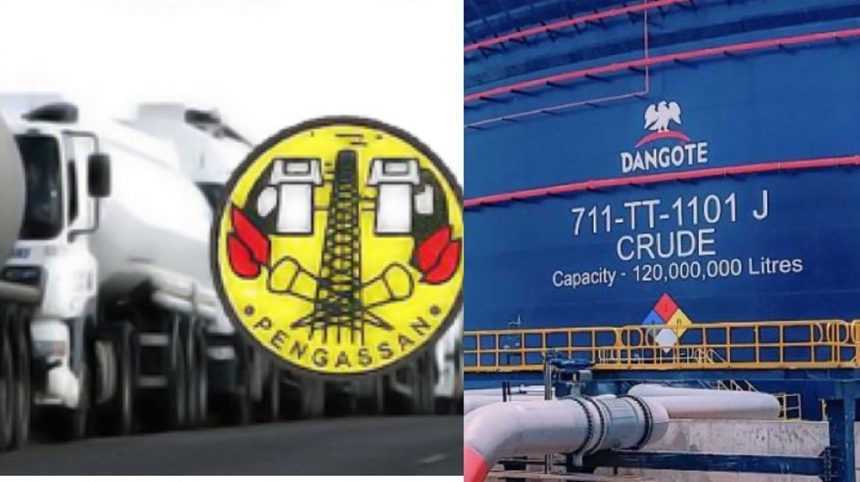
Samuel Omang
The tension that engulfed the Dangote Refinery in recent days has finally eased, following decisive intervention by the Federal Government. What began as a bitter labour dispute between the refinery’s management and the Petroleum and Natural Gas Senior Staff Association of Nigeria, PENGASSAN, threatened to destabilise Nigeria’s fragile energy supply until both sides were brought to the table in Abuja.
The crisis was ignited by allegations of mass transfers and dismissals of union members. PENGASSAN accused the refinery of not only targeting its members but also of replacing some Nigerian staff with foreign workers—moves it described as “violations of labour laws that undermine local employment rights.” The refinery’s management, however, rejected the allegations, maintaining that the reorganisation was “due to operational requirements and not related to union activities.”
Matters escalated quickly. PENGASSAN declared an industrial action, halting crude oil and gas supply to the refinery and raising fears of a nationwide energy crisis. For many observers, the standoff showed just how critical the refinery had become to Nigeria’s economic stability.
Alarmed by the growing impasse, the Federal Government stepped in. Labour and Employment Minister, Dr Mohammed Maigari Dingyadi, convened a high-level meeting in Abuja. After examining the procedure used in disengaging the workers, the government pressed for an immediate compromise.
The breakthrough came when the Dangote Group agreed to redeploy the disengaged workers across its subsidiaries. Dingyadi confirmed:
“The management of Dangote Group shall immediately begin the process of redeploying the disengaged staff to other companies within the Dangote Group, with no loss of pay.”
The minister was emphatic that workers would not be punished for their roles in the crisis.
“No worker will be victimised arising from their role in the impasse between Dangote and PENGASSAN,” he declared.
On its part, the union signaled readiness to de-escalate. According to Dingyadi,
“PENGASSAN agreed to start the process of calling off the strike. Both parties agreed to this understanding in good faith.”
The minister also used the occasion to remind employers that workers’ rights must not be trampled upon.
“Unionisation is a right of workers in accordance with the laws of Nigeria, and this right should be respected,” he said firmly.
For workers, the resolution meant reprieve and restored dignity. For management, it meant a chance to stabilise operations without further disruption. And for the country, it was a relief that a potentially crippling energy crisis had been averted.
The Dangote Refinery, hailed as a game-changer for Nigeria’s oil sector, can now resume operations while rebuilding trust with its workforce. The Federal Government, through this intervention, reaffirmed its commitment to safeguarding both workers’ welfare and national economic security.
In the end, dialogue prevailed where confrontation threatened to divide. With the redeployment of disengaged staff assured and the PENGASSAN strike suspended, the episode stands as another reminder that Nigeria’s industrial disputes are best resolved through negotiation, compromise, and respect for the law.
